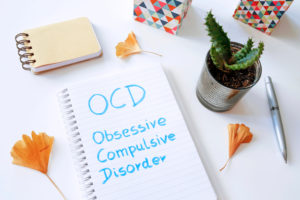
Sleep issues are a common occurrence for many people, with the UK often described as a sleep-deprived nation.
There are many causes for sleep disturbances, such as age, stress, or poor sleep habits, but it is important to address the cause so you can enjoy all of the mental and physical health benefits of a good night’s sleep.
Dr Stuart Sadler (Lead Clinical Psychologist) at Newcastle Psychologists & Counselling specialises in providing insomnia-focused CBT in Newcastle to the many people who struggle with sleep.
Poor sleep hygiene can be part of the reason that people struggle with their sleep. Here are some sleep hygiene tips to help increase the chances of a good night’s sleep:
Don’t Drink Caffeine Before Bed
We are a nation of tea drinkers. For those who dislike the traditional brew, they often find a replacement in the form of coffee.
These hot beverages however, much like cola drinks, contain caffeine that blocks sleep-promoting receptors (such as adenosine receptors) in the brain, so if you consume these drinks throughout the day and especially before bed, your sleep can be disrupted.
Research has shown the effects of caffeine last for several hours after consumption, so while your morning cup of Joe might not feel as though it isn’t doing you any harm, an evening beverage will most likely lead to a restless night.
It is recommended to stop drinking caffeinated drinks by 5pm at the latest, though ideally because of caffeine’s “half-life” (the amount of time for half of the dose to leave the body) it is best to avoid altogether if you can.
Keep a Tidy Sleep Environment
Now that a significant portion of the population works from home, it can be tempting to grab your laptop and work from your duvet.
As any of our practitioners trained in CBT for insomnia in Newcastle will tell you however, this is a bad idea for trying to improve your sleep habits.
Ideally, your bedroom should be used for relaxation and sleep only.
Sex is also permitted though that’s because it often helps with relaxation, and the release of certain hormones that can promote calmness and sleep.
When you spend a significant amount of time in your bed doing activities that stimulate your brain, such as watching TV, reading, playing video games, or using your phone, your mind has trouble switching off.
Leave these activities to outside the bedroom and enjoy a better night’s sleep.
Stop Checking The Time Frequently
Have you ever heard the saying: ‘a watched pot never boils?’
A similar ethos can be applied to continuously checking the time as you try to get to sleep. The more times you look at what time it is, the more agitated we become that we’re not asleep and the harder it will be to achieve restfulness.
Our bodies must be in a state of relaxation in order to get to sleep, and constantly checking the time can increase our stress and tension.
Simlarly, the habit of ‘checking’ can be a symptom of anxiety, and exhibiting anxious behaviours or dancing with anxious thoughts make it difficult to sleep.
Try to put your phone out of arm’s reach so you cannot compulsively check the time. Instead focus on deep breathing and relaxation techniques.
Contact us about our Insomnia-Focused CBT
Dr Stuart Sadler is experienced and highly trained in a number of approaches proven to help you overcome your sleep difficulties and the impact it can have on other problems and day-to day life.
If you need help with your sleep, we offer insomnia-focused CBT in Newcastle (and online) to help you sleep better and improve the quality of your sleep.
Fill in the box below or 07966 645 198 to speak to us about seeing Dr Stuart Sadler about your sleep.

Best wishes,
Dr Stuart Sadler
Lead Clinical Psychologist




